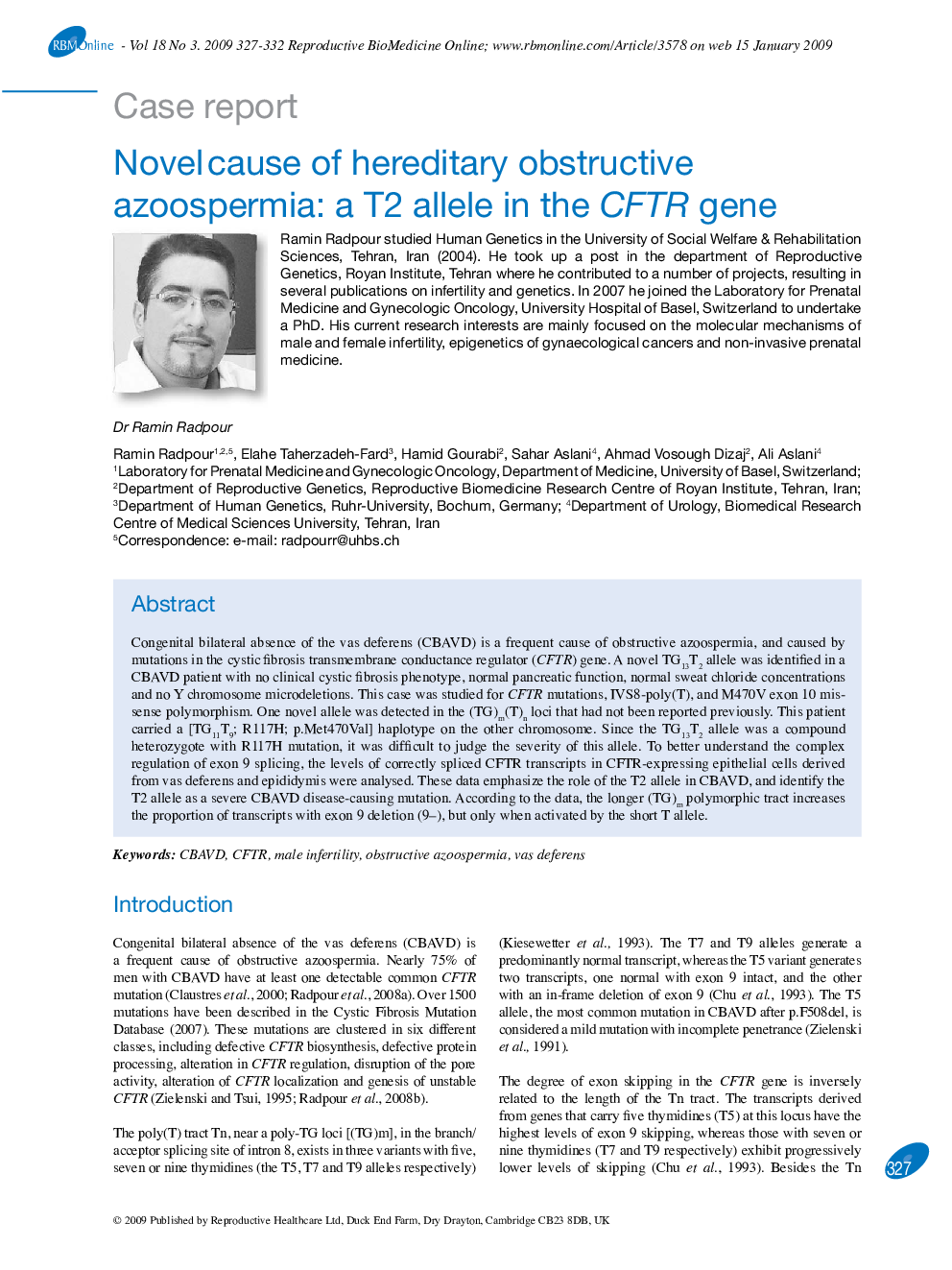| Article ID | Journal | Published Year | Pages | File Type |
|---|---|---|---|---|
| 3972016 | Reproductive BioMedicine Online | 2009 | 6 Pages |
Congenital bilateral absence of the vas deferens (CBAVD) is a frequent cause of obstructive azoospermia, and caused by mutations in the cystic fibrosis transmembrane conductance regulator (CFTR) gene. A novel TG13T2 allele was identified in a CBAVD patient with no clinical cystic fibrosis phenotype, normal pancreatic function, normal sweat chloride concentrations and no Y chromosome microdeletions. This case was studied for CFTR mutations, IVS8-poly(T), and M470V exon 10 mis-sense polymorphism. One novel allele was detected in the (TG)m(T)n loci that had not been reported previously. This patient carried a [TG11T9; R117H; p.Met470Val] haplotype on the other chromosome. Since the TG13T2 allele was a compound heterozygote with R117H mutation, it was difficult to judge the severity of this allele. To better understand the complex regulation of exon 9 splicing, the levels of correctly spliced CFTR transcripts in CFTR-expressing epithelial cells derived from vas deferens and epididymis were analysed. These data emphasize the role of the T2 allele in CBAVD, and identify the T2 allele as a severe CBAVD disease-causing mutation. According to the data, the longer (TG)m polymorphic tract increases the proportion of transcripts with exon 9 deletion (9–), but only when activated by the short T allele.
